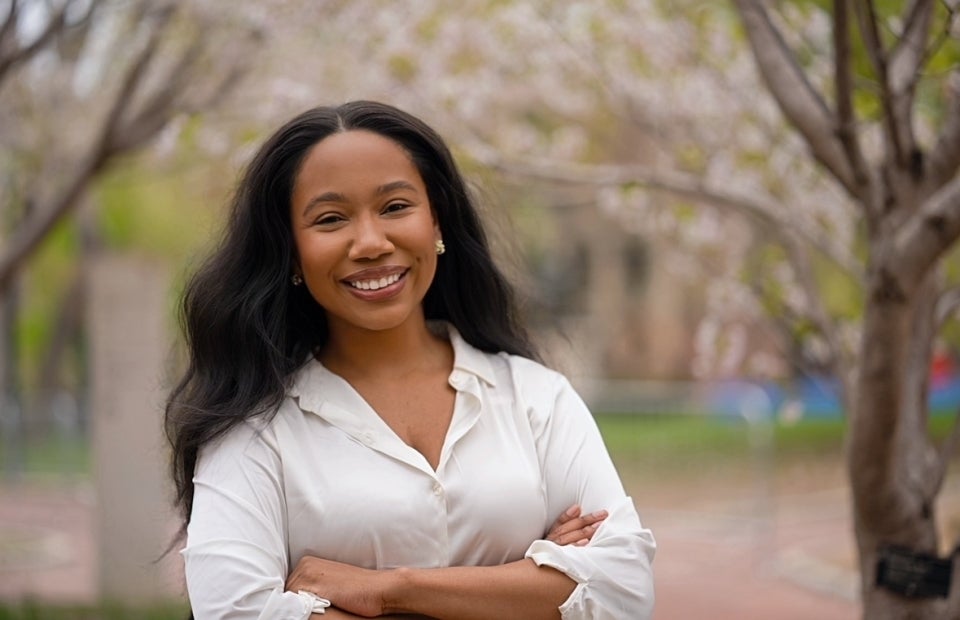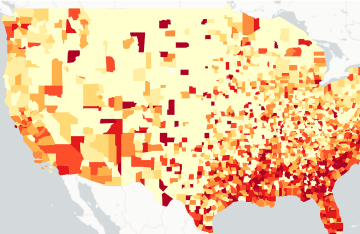Collaborating With Southern Black Grandmothers to Reimagine Scholarship
For an Annenberg School for Communication dissertation, Staci L. Jones and four grandmother co-authors introduce the Kitchen Scholar Framework. Their work embraces knowledge that goes beyond academia.

Staci L. Jones grew up in Lancaster, South Carolina, learning that knowledge isn’t always written down or validated by institutions. It’s poured like batter, seasoned through experience, and passed on through care and community, she says. Her grandmother, like other community elders, wasn’t just a keeper of cultural memory—she was Jones’ first theorist.
Now a newly minted Annenberg School for Communication Ph.D., Jones stands at the intersection of two worlds: academia—which requires citations and credentials—and the homeplace traditions that taught her that knowledge comes from lived experiences and relationships. Her scholarship embraces this contradiction.
In her dissertation, Jones and her co-authors—southern Black grandmothers Hattie Belle Jones, Luvenia McFadden, Lena Jenkins, and Mattie Jewel Lane—seek to expand academic definitions of knowledge and reimagine who counts as a scholar.
The dissertation grew out of an assignment for Penn’s Black Performance Theory course, taught by Jasmine E. Johnson, assistant professor of Africana studies. Jones interviewed her grandmother, and “my only motive was to show that she was just as smart as the canonical scholars we’re told to reference,” she says.
After her grandmother’s passing in 2021, Jones expanded the project, collaborating with three other grandmothers. Structural barriers in the Jim Crow South kept these women from attending school past eighth grade, Jones says, but they embody rigorous knowledge traditions often overlooked in academia.
Together, they co-developed the Kitchen Scholar Framework, a methodology challenging traditional hierarchies of knowledge production. Drawing from Black feminist epistemology, communication studies, critical cultural studies, and philosophy—and informed by thinkers such as Patricia Hill Collins, Antonio Gramsci, Gayatri Spivak, and Sylvia Wynter—the framework builds on and expands the idea that everyday relational knowledge is not supplemental to scholarship—it is scholarship, Jones says.
The framework is anchored by four principles, each developed through collaboration with her co-authors:
- Embedded reflexivity: a constant interrogation of how one’s positionality as a scholar shapes interpretation. Jones draws the analogy of a cast-iron skillet, as the lens of scholars is seasoned by both homeplace knowledge and academic training.
- Collaborative knowledge production: an approach where contributors sign off on every part of the project. Jones says this principle came from McFadden’s saying, “One link of chain can’t rattle by itself.”
- Amplification over translation: the preservation of vernacular rather than translating it to conventional written language. For example, Jones chose to keep her grandmother’s phrasing that she “knowed” something instead of changing it to “knew.” Her grandmother’s word choice, Jones says, signals a living and ongoing form of knowledge rather than something fixed in the past.
- Authorship as intellectual recognition: naming all contributors as co-authors instead of reserving authorship for formally credentialed researchers. In Jones’ dissertation, the grandmothers’ names appear in the text, copyright, and preferred citation—what she calls an intentional move to assert their legal and institutional authorship alongside her own.
Jones says the Kitchen Scholar Framework asks scholars to question whether the knowledge is truly their own or if it comes from people without the same credentials—and what it would mean to credit those people for their ways of knowing.
“My goal as a scholar is to say things differently so it can register with a different—and possibly broader—audience,” she says. “What we often call ‘new’ knowledge is usually built on insights and practices that have long existed, just unacknowledged or ignored. And with that, there’s always power at play. My work sits at the intersection of power, knowledge, and creating space for those most often dismissed.”
Her dissertation was about creating something that belongs to the grandmothers. Jones says one started crying in a conversation because it was the first time her name was attached to work that she did. “All of my co-authors grew up as sharecroppers in the rural South and were either housemaids or other types of service workers for people who discriminated against them,” Jones says. “That was their experience: doing the labor of sustaining their communities and society at large and not receiving anything in return.”
Jones says the Kitchen Scholar Framework was created so others can also enact epistemic justice in their scholarship. She has already applied aspects of the framework across industries—including through a user experience research internship at Google—and says she looks forward to contributing to a more just future through her post-graduate career.



